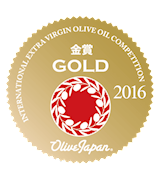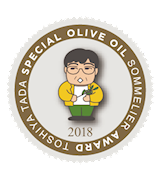Best Metropolitan City of Bari Foods
This Apulian delicacy is traditionally prepared with a soft, yeasted dough that combines semolina, wheat flour, and mashed potatoes. It is usually topped with cherry tomatoes and olives, but some varieties occasionally employ other combination of ingredients, such as different vegetables, coarse salt, or rosemary.
Always baked in round tins, focaccia is usually doused in olive oil and is best served lukewarm.
Panino col polpo is a traditional sandwich originating from the Bari area. This simple sandwich is made with a combination of octopus, bread rolls, olive oil, parsley, salt, and black pepper. The octopus is washed, brushed with olive oil, and grilled slowly over embers while being brushed with a mixture of olive oil, salt, pepper, and parsley as it cooks.
Once done, the octopus is placed into a split bread roll, and the sauce is drizzled over the top of the octopus. This tasty sandwich is common during Apulian festivals and it can often be bought on street stands.
OTHER VARIATIONS OF Panini
MAIN INGREDIENTS
Orecchiette con cime di rapa (orecchiette with broccoli rabe) is one of the most popular pasta dishes from the Italian region of Apulia, especially beloved in the region's capital, Bari. Orecchiette have a perfect shape for scooping up the chunky pieces of boiled broccoli rabe, or rapini - a leafy, green vegetable closely related to turnip.
This simple rustic dish is enriched with freshly grated, aged hard cheese (usually Pecorino Romano) and a sprinkle of crushed peperoncino flakes. Orecchiette con cime di rapa is best enjoyed immediately after the preparation, served with a generous drizzle of extra-virgin olive oil.
Serve with
MAIN INGREDIENTS
Orecchiette alla barese is a traditional pasta dish originating from Bari in Puglia. The dish is usually made with a combination of orecchiette pasta, rapini (broccoli rabe), garlic, olive oil, chili peppers, and a few anchovies. However, there are a few variations on the dish, so the list of ingredients may vary.
The garlic is chopped, sautéed in oil, then mixed with the anchovies which are mashed into the oil with some chili pepper. The sauce is then mixed with the rapini and the pasta, and the dish is often seasoned with ground pepper before serving.
MAIN INGREDIENTS
Spaghetti all’assassina is an unusual pasta dish from Bari, unique for its method of preparation - risottatura style (because it's similar to the one used in making risottos). According to the Accademia dell’assassina, that means cooking spaghetti directly in a spicy tomato broth until caramelized, burnt, crisp, and infused with spicy tomato broth, all in a cast-iron pan.
The trick is adding the tomato broth gradually, so the spaghetti absorb it, then sizzle and burn a bit before each new pour. Although there is some dispute over the origin of this dish, it is mostly agreed upon that it was invented in 1967 by chef Enzo Francavilla in his Barese restaurant Al Sorso Preferito, which serves it to this day.
MAIN INGREDIENTS
Sgagliozza is an Italian dish from Bari, consisting of rectangular (or square-shaped) pieces of fried polenta. The dish is made with polenta flour, water, salt, and oil. Once cooked, the dense polenta is left to cool and it is then sliced into rectangular pieces and fried until golden brown.
Sgagliozza is traditionally sold after the mass near the St. Nicholas Cathedral during the day of the saint, but it's also a staple during winter in the city, sold by street vendors and always served piping hot.
OTHER VARIATIONS OF Polenta
Named after a town settled on one of the Murge plateau hills, pane di Altamura is a country-style sourdough bread that has been traditionally produced in the provinces of Bari and Barletta-Andria-Trani for centuries. It is made only with durum wheat dough, natural yeast, salt, and water.
Once the staple food of Murge people, these large loaves of bread were kneaded in Altamura's households, branded with the family name, then baked in community ovens. Since the loaves were supposed to feed whole families for one or even two weeks, the bread of Altamura had to be very durable, which is, even today, one of its most prized features.
Pallone di Gravina is an Italian cheese hailing from Gravina in Puglia. This semi-hard, pasta filata-style artisan cheese is made from pasteurized cow's milk and it's shaped into a ball, hence the word pallone, from the word palla. It's aged for a minimum of 4 months.
The shape of the cheese made it easier to hang it or transport it on donkeys' backs in the past. Underneath its hard natural rind, the texture is smooth. The flavors are strong and spicy.
Traditionally produced in the provinces of Foggia and Bari, Canestrato Pugliese is a hard cheese made from sheep's milk. It is one of the most prized products of the Apulia region, masterfully crafted from December to May, at altitudes varying between 250 to 700 meters, where the Mediterranean climate creates optimal sheep farming conditions.
Canestrato is aged in reed baskets typical for the Apulian area, and while matured Canestrato has quite a strong piquant flavor and is more suitable for grating, the younger versions are much more delicate and should be paired with fava beans, pears, or crudités, and accompanied by rosé or dry white wines.
Tiella di riso, patate e cozze is a layered dish consisting of rice, potatoes, mussels, onions, and tomatoes which are seasoned with olive oil, salt, parsley, pepper, and garlic. Originally from the city of Bari, this rich and fragrant dish with a crispy golden crust is very popular throughout Apulia.
Additional ingredients such as various seasonal vegetables, breadcrumbs, or Pecorino cheese may be used, and variations of the dish use different types of seafood. Tiella is also the name used for a round terracotta pan in which this dish is traditionally prepared, and depending on the area, ingredients that are used in tiella change - that explains why in some Italian regions a tiella is a type of focaccia, with or without a filling, and in others it is a stew or a layered casserole made with or without a crust.
OTHER VARIATIONS OF Tiella
Best Metropolitan City of Bari Food Producers
Caseificio Artigiana, located in Putignano, Italy, is renowned for its traditional Apulian dairy products, crafted with a deep respect for artisanal methods. Established in 2001, the dairy has grown significantly, now operating in a large facility that reflects its expansion in both the domestic and international markets.
This growth is supported by their commitment to using only the best local milk, ensuring the quality and authenticity of their products such as mozzarella, burrata, and various aged cheeses. The dairy's excellence has been recognized with numerous awards, particularly for their burrata, which has gained international acclaim.
AWARDS

World Cheese Awards - Super Gold
2022

World Cheese Awards - Gold
2023

Concours International de Lyon - Gold
2025
BEST Caseificio Artigiana Cheeses
Olio Mimì is an olive oil producer based in Bari, Italy. This family-run business is known for its high-quality extra virgin olive oils made from locally sourced olives. Olio Mimì uses advanced milling techniques to ensure the freshness and nutritional value of their olive oils.
The company offers a range of products, including single-varietal oils and blended oils. Their commitment to quality and sustainability is reflected in their careful cultivation practices and transparent production processes.
AWARDS

NYIOOC - Gold
2023

Olive Japan - Gold
2023, 2019, 2018

EVO IOOC - Gold Medal
2021, 2019, 2018, 2017
BEST Olio Mimì Olive Oils
Azienda Agricola Leuci is an olive oil producer based in Giovinazzo, a town in the Apulia region of Italy. The company specializes in the production of high-quality extra virgin olive oil. Their olives are locally sourced and mechanically pressed to ensure purity and freshness.
The family-owned business emphasizes sustainable agricultural practices and traditional methods to maintain the integrity of their products.
AWARDS

EVO IOOC - Gold Medal
2017

Olive Japan - Premier
2022, 2021, 2020, 2019, 2017

Olive Japan - Best of Country
2020, 2019
BEST Azienda Agricola Leuci Olive Oils
AWARDS

EVOOLEUM - Top 100
2024, 2023

EVOOLEUM - TOP10 HEALTHY EVOOs
2023
BEST Frantoio Oleario Mossa Domenica Olive Oils
AWARDS

Olive Japan - Gold
2016

Flos Olei - The Best
2024, 2021
BEST Azienda Agricola Le Tre Colonne Olive Oils
AWARDS

NYIOOC - Gold
2023

EVO IOOC - Gold Medal
2021
BEST Agroalimentari Del Colle Olive Oils
AWARDS

EVO IOOC - Gold Medal
2021
BEST Elaiopolio Coop. Rif. Fond. Olive Oils
AWARDS

Great Taste Awards - 3 stars
2024
BEST Caseificio Ignalat Cheeses
Best Metropolitan City of Bari Food Products
AWARDS

Olive Japan - Gold
2022, 2020, 2019, 2017

EVO IOOC - Gold Medal
2016

Olive Japan - Premier
2023, 2021, 2016
The Burrata from Caseificio Artigiana, located in Putignano, Apulia, Italy, has received significant accolades for its quality. It was named the best Burrata in the world at the Italian Cheese Awards in both 2018 and 2019. This prestigious cheese is crafted using traditional methods and is known for its fresh flavor and creamy interior, which includes hand-made mozzarella strips mixed with cream.
Caseificio Artigiana uses cow's milk collected daily from local farms, emphasizing the freshness and regional quality of their products. This award-winning Burrata showcases the artisanal skills and the heritage of Apulian cheesemaking passed down through generations.
AWARDS

Italian Cheese Awards - ICA
2023, 2019, 2018

Italian Cheese Awards - Nominee
2022, 2020
AWARDS

Olive Japan - Gold
2023, 2019

Olive Japan - TOSHIYA TADA SPECIAL SOMMELIER AWARD
2023, 2019

EVO IOOC - Best International in Class
2017
Leuci Coratina is an extra virgin olive oil produced by Azienda Agricola Leuci. This product is crafted using the Coratina olive variety, which is known for its robust and rich flavor profile. The olive oil is characterized by its intense fruitiness, coupled with a pronounced peppery and slightly bitter taste.
Leuci Coratina is often praised for its high polyphenol content, contributing to its health benefits and antioxidant properties. The careful selection and traditional methods employed in the production process reflect the company's commitment to quality and authenticity.
AWARDS

Olive Japan - Premier
2021, 2020, 2019

Olive Japan - Best of Country
2020, 2019
Caciocavallo Silano DOP is a traditional Italian cheese produced by Caseificio Artigiana. This cheese is known for its distinctive teardrop shape and is made from cow's milk. It has a smooth, straw-yellow rind and a semi-hard interior that can range from white to pale yellow.
The flavor profile of Caciocavallo Silano is rich and complex, with hints of sweetness and tanginess. The cheese is typically aged for two to three months, although it may be aged longer for a more intense flavor.
AWARDS

World Cheese Awards - Super Gold
2022

World Cheese Awards - Gold
2023

Italian Cheese Awards - Nominee
2020
People who know burrata, can not miss stracciatella. Stracciatella is in fact the soft and creamy heart of burrata. It is a spun paste dairy product, a delicate mixture of fresh cream and hand frayed mozzarella cheese (mozzarella shreds). They are beautifully milky white in color, with no rind and a fibrous structure.
The taste is fresh and slightly acidulous, with a delicate smell.
AWARDS

World Cheese Awards - Super Gold
2022

Concours International de Lyon - Gold
2025
AWARDS

EVOOLEUM - Top 100
2024, 2023

EVOOLEUM - TOP10 HEALTHY EVOOs
2023
Mimì Coratina is an extra virgin olive oil produced by Olio Mimì. It is made from Coratina olives, which are known for their robust flavor and high polyphenol content. The oil typically features a rich, fruity aroma with hints of green tomato and artichoke, and a balanced bitterness and spiciness that are characteristic of the Coratina variety.
This extra virgin olive oil is often used to enhance the flavor of various dishes, including salads, grilled vegetables, and meats.
AWARDS

NYIOOC - Gold
2023

Olive Japan - Gold
2018

Olive Japan - Toshiya Tada Special Sommelier Award
2018
Masserie di Sant'Eramo Monocultivar Coratina made by Agroalimentari del Colle is an extra virgin olive oil produced in the Apulia region of Italy. It is created from 100% Coratina olives, a variety known for its high polyphenol content and robust flavor profile.
The oil is characterized by its intense, fruity aroma with hints of green almond and artichoke, complemented by a peppery finish. It is often praised for its unique taste, which pairs well with a variety of dishes, from salads to grilled meats.
AWARDS

NYIOOC - Gold
2023

EVO IOOC - Gold Medal
2021
MIMÌ DENOCCIOLATO CORATINA is a high-quality extra virgin olive oil produced by Olio Mimì. It is crafted from Coratina olives, which are known for their robust flavor profile and high antioxidant content. The oil is characterized by its intense fruitiness and balanced bitterness and spiciness, making it a versatile choice for a variety of culinary applications.
The olives are typically stone-ground and cold-pressed to preserve their natural flavors and nutrients.
AWARDS

Olive Japan - Gold
2023

EVO IOOC - Gold Medal
2021










TasteAtlas food rankings are based on the ratings of the TasteAtlas audience, with a series of mechanisms that recognize real users and that ignore bot, nationalist or local patriotic ratings, and give additional value to the ratings of users that the system recognizes as knowledgeable. TasteAtlas Rankings should not be seen as the final global conclusion about food. Their purpose is to promote excellent local foods, instill pride in traditional dishes, and arouse curiosity about dishes you haven’t tried.




















































